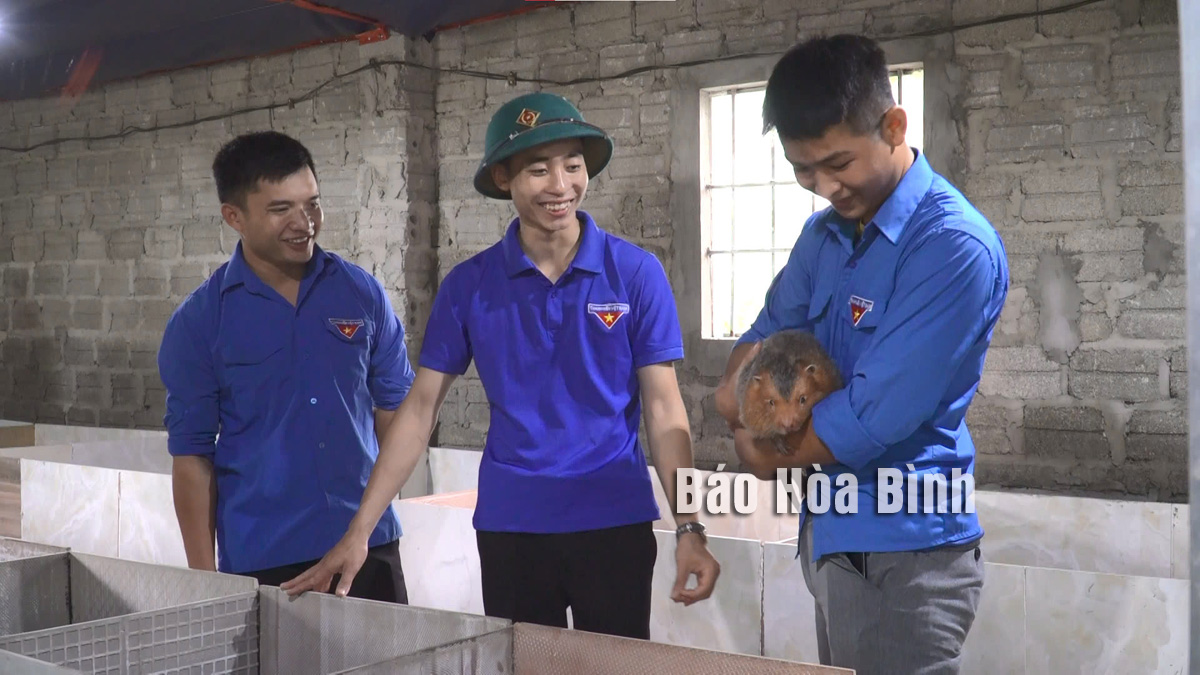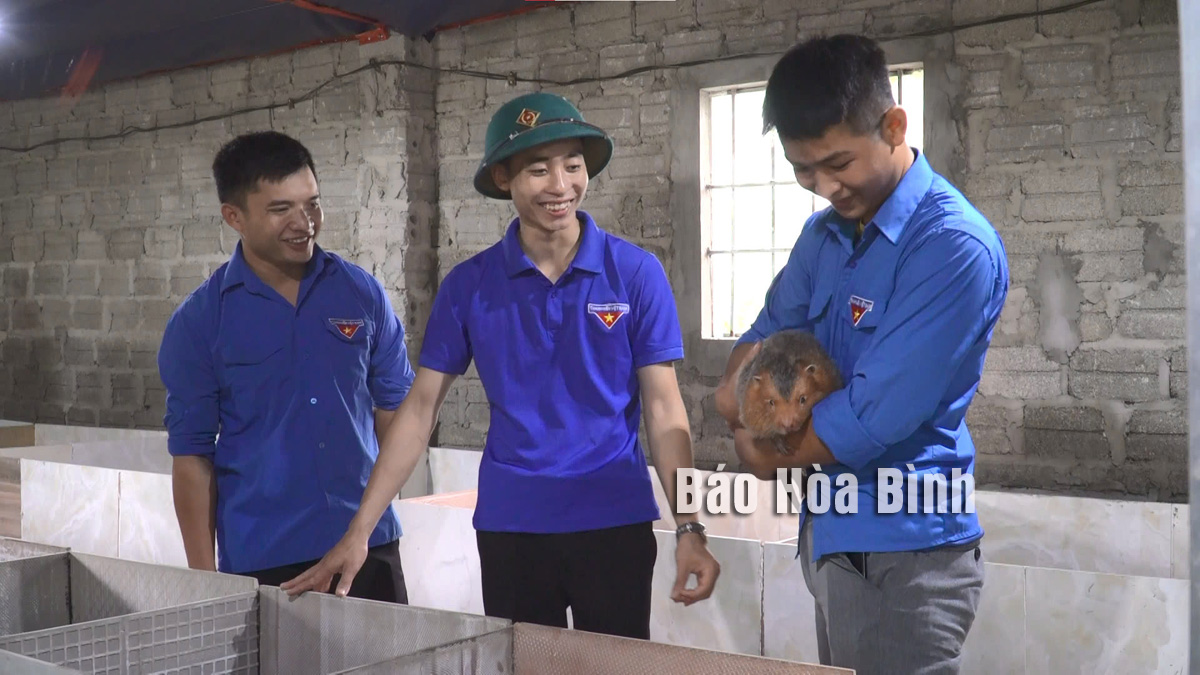
Over the past time, many youth union members and young people in Yen Thuy district have optimised local strengths for start business.
A bamboo rat
(scientifically known as Rhizomyinae) farm of Bui Van Nhat (centre) in Bao Hieu
commune, Yen Thuy district.
Bui Phi Nam, in Yen Tri commune, has established
the Yen Tri agriculture cooperative, aiming to connect the households growing
"xa den”, a type of herbal plants scientifically known as Celastrus hindsii
Benth et Hook, to form a production chain.
The cooperative’s products have been highly
valued and rated three stars under the "One Commune-One Product” programme.
Nam said apart from traditional marketing
methods, he has utilised social networks and e-commerce platforms, helping
raise sales efficiency.
Bui Van Nhat, in Bao Hieu commune, has invested
in a bamboo rat (scientifically known as Rhizomyinae) farm covering 200 sq.m,
with about 120-160 bamboo rats. The man earns about 300-350 million VND
(11,931-13,919 USD) each year from the farm.
To better job consultation and introduction, Yen
Thuy district’s youth union in coordination with Chi Anh Investment and
Development JSC organised such events for 300 youth union members in the
locality in the first six months of this year.
It has also supplied high-quality personnel to
businesses and vocational training facilities, and provided career updates
through its Facebook fanpages.
To assist startups among youth union members,
the standing board of the district youth union has also reviewed effective
economic models that need capital, and make a report to the standing board of
the provincial youth union in order to help them access loans under the
preferential credit programme in support of young entrepreneurs.
Bui Tuan Thanh, secretary of Yen Thu district’s
youth union, said the economic models run by youth union members have helped
improve the living standards of their families, while promoting the startup
spirit among local youths.
According to data from the Hoa Binh Provincial Party Committee, the industrial production index for the first six months of 2025 is estimated to have increased by 20% compared to the same period last year. This marks the highest year-on-year growth rate for this period since 2020.
In the first six months of 2025, Hoa Binh province’s export turnover was estimated at 1.145 billion USD, marking an 18.11% increase compared to the same period in 2024. Import turnover was estimated at $ 804 million, a 17.15% increase, which helped the province maintain a positive trade balance.
The lives of the ethnic minority farmers in Tan Lac district have gradually improved thanks to the new directions in agricultural production. This is a testament to the collective strength fostered through the professional associations and groups implemented by various levels of the district’s Farmers’ Union.
With the motto the "product quality comes first,” after nearly one year of establishment and operation, Muong village’s Clean Food Agricultural and Commercial Cooperative, located in Cau Hamlet, Hung Son Commune (Kim Boi district), has launched reputable, high-quality agricultural products to the market that are well-received by consumers. The products such as Muong village’s pork sausage, salt-cured chicken, and salt-cured pork hocks have gradually carved out a place in the market and they are on the path to obtaining the OCOP certification.
In the past, the phrase "bumper harvest, rock-bottom prices" was a familiar refrain for Vietnamese farmers engaged in fragmented, small-scale agriculture. But today, a new spirit is emerging across rural areas of Hoa Binh province - one of collaboration, organisation, and collective economic models that provide a stable foundation for production.
Maintaining growing area codes and packing facility codes in accordance with regulations is a mandatory requirement for agricultural products to be eligible for export. Recently, the Department of Agriculture and Environment of Hoa Binh province has intensified technical supervision of designated farming areas and packing facilities to safeguard the "green passport" that enables its products to access international markets.



